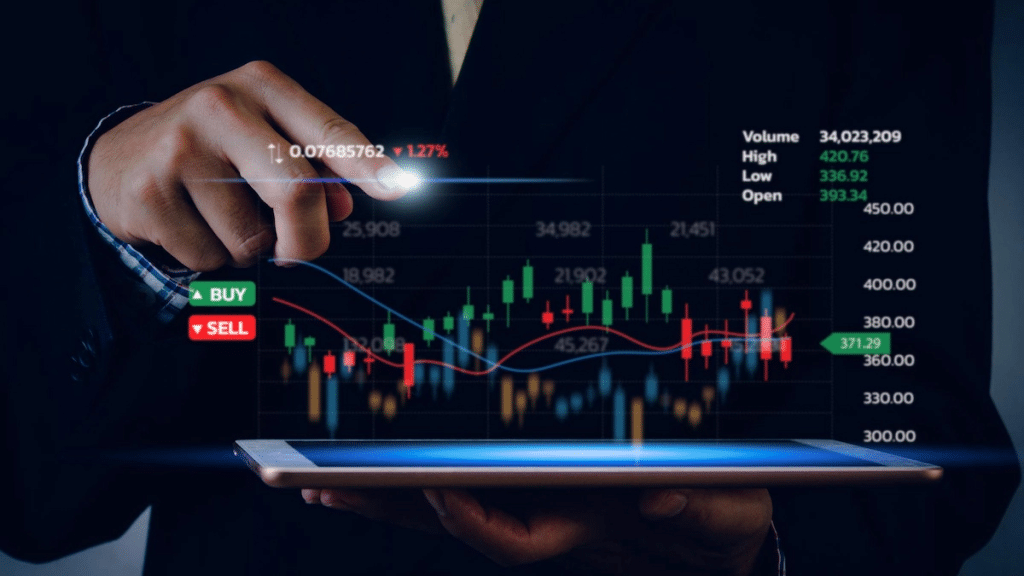For anyone interested in growing their wealth over the long term, choosing between stock trading and forex trading is an important decision. Both markets operate differently and present unique opportunities and challenges for investors. For most long-term investors, stocks are generally the more suitable choice due to their potential for steady growth and dividend income over time.
Long-term stock investing focuses on growing capital over time while minimizing short-term market fluctuations. On the other hand, forex trading is more suited for those aiming for quick profits, as it’s influenced by higher volatility and currency changes. Selecting a reliable online trading platform is crucial for managing risks and accessing both types of markets efficiently. This decision promotes better investment management and safer trading practices.
Key Takeaways
- Stocks usually fit long-term investors seeking steady growth.
- Forex provides more short-term trading opportunities and higher risk.
- Choosing the right trading platform can impact investment success.
Stock Trading vs. Forex Trading: Core Differences for Long-Term Investors
Stocks and forex represent two prominent financial markets, each with unique features that appeal to different types of investors. Key contrasts involve the underlying assets, the way trades are executed, market hours, and the level of liquidity available.
Asset Types and Market Structure
The main distinction between these two markets is the nature of the assets traded. Stocks represent ownership in companies, such as those listed on the NYSE, NASDAQ, BSE, or NSE. Investors buy and hold shares in blue-chip or growth companies with the expectation of capital appreciation or dividend income.
Forex trading involves the exchange of currency pairs like EUR/USD or GBP/JPY. Rather than owning a stake in a business, forex traders profit from changes in exchange rates between two national currencies. The forex market is decentralized and operates over-the-counter through a network of banks, brokers, and institutional market participants, unlike stock markets, which are centralized exchanges.
Trading Hours and Accessibility
Stock markets have set trading hours defined by their respective exchanges. For example, the NYSE and NASDAQ operate from 9:30 a.m. to 4:00 p.m. EST on weekdays. Investors can only trade during these sessions, although some exchanges provide limited after-hours trading.
The forex market provides much greater time flexibility, operating 24 hours a day, five days a week. Trading in forex is divided into global sessions: Asia, Europe, London, and New York. This continuous schedule enables investors to react immediately to global economic events, though it may also require more careful monitoring. The fixed hours of stock exchanges can provide structure and create predictable liquidity peaks, while the constant activity in forex can mean more frequent price swings and news-driven volatility.
Liquidity and Market Volume
Liquidity is a crucial factor in both markets, but the scale differs significantly. Forex trading takes place in what is considered the most liquid market in the world, with an average daily volume often exceeding $6 trillion. Popular pairs like EUR/USD often experience tight spreads and rapid trade execution, minimizing transaction costs for most market participants.
The stock market provides high liquidity in major shares, particularly for blue-chip stocks and large-cap companies listed on NYSE or NASDAQ. However, liquidity can vary widely, especially with less popular stocks or during off-peak exchange hours. Some stocks may also have larger bid-ask spreads in less active trading sessions or on smaller exchanges like BSE or NSE.
Evaluating Long-Term Investment Potential: Profitability, Risks, and Strategies
Long-term investors compare stock and forex markets by assessing expected profits, risk levels, and the commitments required. Spotting the differences in growth drivers, volatility, and cost structures is essential for choosing the right vehicle.
Profit Potential and Growth Drivers
Profit in the stock market often comes from both capital gains and dividends. Top companies like Apple and Microsoft have historically provided steady growth, driven by earnings reports, innovation, and broad market trends. Investors can benefit from price movement as well as income through regular dividend payouts.
Forex markets, such as EUR/USD or AUD/USD, do not provide dividends. Profit is derived solely from price movement, typically influenced by exchange rates, economic indicators, and political news. Unlike stocks, forex does not have earnings reports or direct business fundamentals—it’s primarily about currency pair price action and market liquidity.
Volatility, Leverage, and Risk Management
Stock volatility can vary greatly. Blue-chip stocks like those in the S&P 500 are usually more stable, while penny stocks are highly volatile. Investors often use fundamental and technical analysis to assess risk and make informed decisions. Forex is typically more volatile due to high leverage and rapid market movements. Brokers often provide 50:1 or 100:1 leverage in forex trading, compared to 2:1 for stocks on margin. This amplifies both gains and losses, making strict risk management crucial. Tools like stop-loss orders or trading derivatives may help limit risks but do not eliminate them.
Stock traders may hold positions for years, relying on business growth. Forex traders, even long-term ones, must regularly monitor positions due to overnight interest charges and evolving macroeconomic factors. Risk management—such as position sizing and careful monitoring—plays a central role in both markets, but leverage and speed make errors costlier in forex.
Conclusion
Stock trading and forex trading each provide distinct benefits and challenges for long-term investors. Stocks provide opportunities for ownership, dividends, and long-term capital appreciation. In contrast, forex trading is more flexible and liquid, appealing to those with short-term or more active trading strategies.
Long-term investors should carefully consider their risk tolerance, investment goals, and preferred market structure. For those prioritizing stability, company fundamentals, and ownership, stocks may be the stronger fit. If flexibility and global exposure are higher priorities, forex may hold more appeal.

